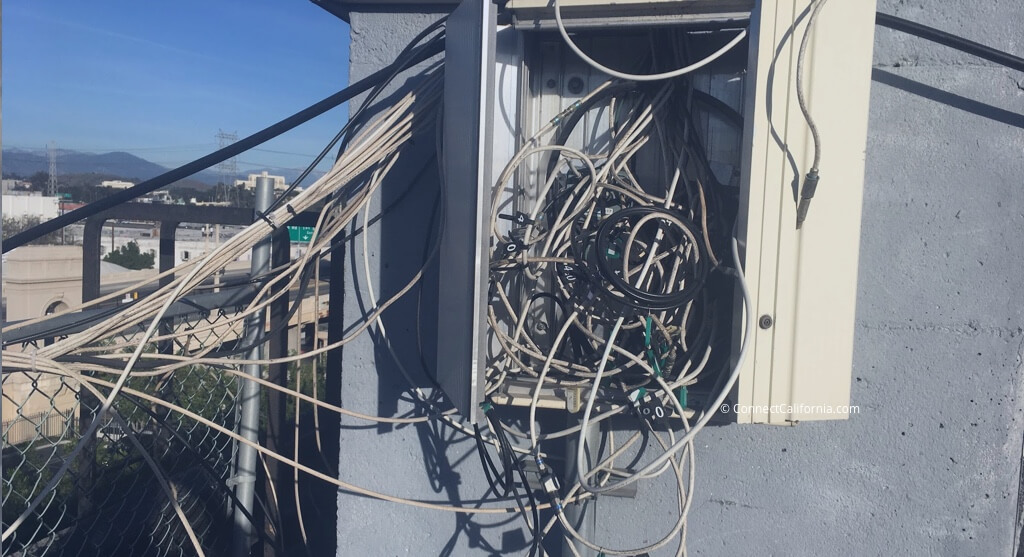
California legislation ensures that rental unit landlords can only shut off utilities under certain circumstances.
California Civil Code 789.3a establishes that landlords can turn off utilities such as water or electricity to a rental for emergencies and quick repairs only. Otherwise, tenants have legal protection in California from utility shutoffs by a landlord.
Both parties should understand the regulations of utility service at a rental unit to avoid unnecessary disputes. I’ve compiled the information below to educate tenants and landlords on California’s rules for utility service to residential rental property.
Disclaimer
This page is not intended to provide legal advice. Always seek out professional guidance from a certified source such as a lawyer, local housing department, or tenants union.
A landlord cannot intentionally shut off utility service to a tenant living in rental property to evict, or move out, the tenant.
This is considered constructive eviction and is non-compliant with California Civil Code 789.3a.
Utility services listed in the Code include, but are not limited to, water, heat, light, electricity, gas, telephone, elevator, or refrigeration.

In addition, Section 789.3c of the Code describes the legal penalties for a landlord who tries to evict a tenant by disconnecting utility service to their rental unit.
In California, a landlord found in violation of the law is subject to pay $100 per day of violation, with a minimum of $250.
A judgment can include additional payments to the tenant for damages and legal fees or other incidents of constructive eviction.
A landlord can temporarily shut off the utility service to a rental unit, or building, in case of an emergency or scheduled repair.
Key PointWhile California code is not completely clear on notice requirements, avoiding legal conflict with tenants is well worth the trouble of making a few phone calls or posting a notice.
While the definition of emergency varies, the service interruption should address an urgent need for repair or other work.
An emergency utility shutoff can prevent significant safety risks to residents of the property and repair staff, or substantial property damage to tenants or landlords.
One example is shutting off gas service to a rental building to investigate and repair a reported gas leak.
In another example, water service is turned off to prevent a broken water pipe from flooding a rental unit.
While both situations can (and do) happen, they are rare and actual emergencies.
Consider that someone living in a single-family home would experience the same utility service outage for a similar emergency.
The temporary interruption of utility service to a rental property due to an emergency should be very infrequent to avoid issues with tenants involving housing authorities.
Maintenance or repair issues that are not emergencies, but require a temporary utility interruption, should be scheduled with proper notice to tenants.
Electrical or plumbing work often requires a service outage to perform the job safely and effectively.
For example, consider these common unit repairs:
| Repair Type | Likelihood of utility shutoff | Reason for utility shutoff |
|---|---|---|
| Plumbing | Very Likely | Pipe glue must be dry to cure |
| Electrical | Very Likely | Safety risk for Electrician |
| Gas | Very Likely | Safety risk for Technician |
| Internet | Somewhat Likely | Frequent disconnections during repair process |
Landlords should notify tenants of a temporary utility service interruption for repairs at least 24 hours before the shutoff.
Notification should (at least) include the scheduled time of service interruption, a brief explanation, and an estimated service restoration time.
Suppose a rental property’s water service needed to be turned off for a minor leak repair. Notice to the tenant could look like this:
“Attention Tenant: water service will be turned off at about 1 PM tomorrow for a pipe repair outside the building. The water outage should last about one hour.”
Whenever possible, landlords should communicate utility service issues and outages to tenants. Emails and texts are efficient methods, serving as time-stamped documentation of notice.
Internet service is an essential part of modern residential life. Tenants may select a rental property based on internet service availability alone.
California Civil Code 789.3 does not include internet service as a listed utility but does not exclude it either. As such, addressing a tenant’s internet service interruption falls to the rental agreement.
Internet listed in a rental agreement as a provided service, whether paid directly by the tenant or included in rent and paid by the landlord, becomes a condition of the agreement.
If internet service is not part of the written and signed rental agreement, a tenant will have more difficulty arguing that interrupted service violates utility shutoff rules.
Avoid oral agreements between a tenant and landlord or informal internet access, such as a landlord sharing a Wi-Fi password with a tenant.
A written rental agreement including details about provided services is the best practice for both tenant and landlord.
California offers a variety of support resources for tenants and landlords:
This document provides clear information answering many questions related to rental agreements between tenants and landlords, including utility service questions.
California’s local housing authorities are great resources for tenants and landlords alike. A list of all CA housing authorities can be found here.
A landlord cannot turn off utility services like water or power to a rental unit unless there is an emergency or scheduled repair. Turning off utility services with the purpose of forcing a tenant to move out is considered an a 'constructive eviction,' and is prohibited by California Civil Code 789.3a.
A landlord is subject to daily legal penalties for a rental unit without utility service per California Civil Code 789.3. Repairs normally are completed within hours. A tenant should generally contact their local housing authority or seek legal protection if utility service to their rental unit is off for more than a day with no explanation or timeline provided for repair.
Author bioTiffanie Hawley has worked in the water treatment industry for nearly 20 years as a treatment plant operator, laboratory technician, regulatory consultant, and plant manager. She aims to educate readers about the scientific and human contributions that are part of producing and protecting drinking water.

When referencing ConnectCalifornia data and content on third-party sites, linked attribution to the source page on www.connectcalifornia.com is required.
